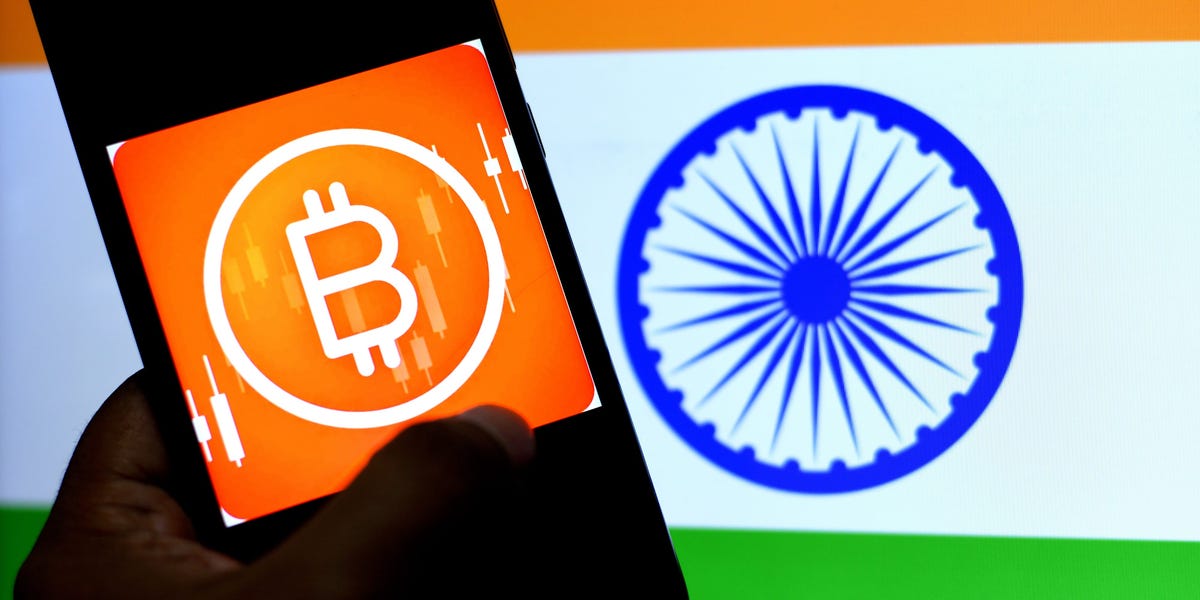India plans to launch a digital rupee in the next year and plans to tax crypto-related income at 30%, according to the finance minister.

The finance minister said that the Indian government will roll out a digital currency over the coming year.
India has previously suggested banning crypto, but now plans to regulate and tax it, the minister said.
India has a large number of crypto investors, estimated to be between 15 and 20 million.
Subscribe to the Trading View newsletter to get the latest news and analysis on the markets, delivered to your inbox daily.
Something is loading.
Email addresses are used to send and receive messages. Email addresses are used to send and receive messages. They are also used to identify the sender and recipient of a message.
By clicking ‘Sign up’, you agree to receive marketing emails from Insider as well as other partner offers. You also agree to our Terms of Service and Privacy Policy.
Cryptocurrencies are gaining popularity in India, with the finance minister announcing plans for a digital currency on Tuesday, along with a framework to regulate and tax crypto assets.
Finance minister Nirmala Sitharaman, as part of her annual budget speech, said the central bank would aim to roll out a digital rupee in the coming fiscal year. This marks a major U-turn for the government, which had signaled it could ban cryptocurrencies outright, until the upper house of parliament clarified that digital assets should be kept on exchanges and monitored correctly by a market regulator. The government has now clarified that it wants to keep a close eye on digital assets and that they should be traded on exchanges.
"The introduction of a central bank digital currency will give a big boost to the digital economy. Digital currency will also lead to a more efficient and cheaper currency management system," Sitharaman said. This will help the country's economy grow.
The government plans to impose a 30% tax on income from cryptocurrencies and other digital assets, as well as apply a 1% tax deduction at source on payments related to purchasing such assets.
CBDCs are digital currencies that are issued by a central bank. They offer a centralized, official alternative to pure cryptocurrencies. Major central banks, such as the Federal Reserve, the Bank of England and the European Central Bank, are all looking into developing their own digital currencies.
But it is the emerging economies where progress is actually being made. China already has a digital yuan in circulation through various pilot programs, putting it several years ahead of G7 central banks in this respect.
The impact of India creating an official digital currency could be significant. The 2021 Global Crypto Market Adoption Index from Chainalysis showed Asia is leading the way in global crypto adoption and India is second only to Vietnam. It is estimated that there are between 15 and 20 million cryptocurrency investors in the country.
Cryptocurrency markets were up slightly on Tuesday, gaining some respite from the almost-unbroken pressure during January, when investors booked profits on some of 2021's big winners. Bitcoin and ether posted gains of 4% and 9% over the past 24 hours respectively, according to CoinMarketCap.
Crypto experts at a major exchange say that bitcoin and ethereum can still avoid a bear market. Here are the 4 key things they say you need to watch to figure out what's next.
Our top picks for the best cryptocurrency exchanges are: 1. Coinbase 2. Gemini 3. Kraken 1. Coinbase 2. Gemini 3. Binance
Comments
Post a Comment